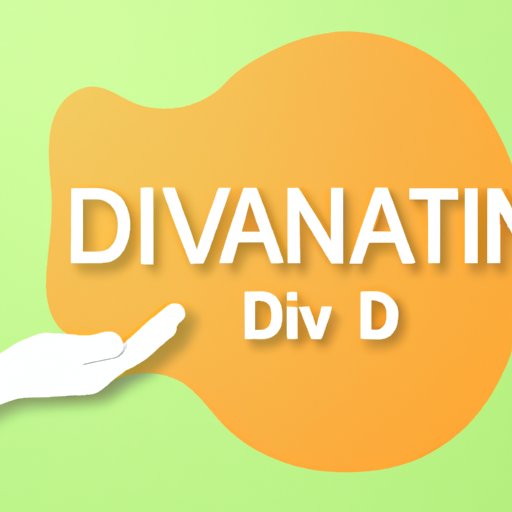
I. Introduction
Vitamin D is a vital nutrient that plays an essential role in building strong bones, regulating the immune system, and maintaining overall health. Unfortunately, Vitamin D deficiency is becoming increasingly common, especially amongst people who have less exposure to sunlight. This article aims to provide tips and strategies for increasing Vitamin D absorption to promote optimal health and well-being.
II. Spend More Time in the Sun
Sunlight is a crucial source of Vitamin D because it helps your body synthesize the nutrient naturally. However, factors such as skin pigment, time of day, and season can affect Vitamin D production. To get enough Vitamin D from the sun, consider spending 10-15 minutes in direct sunlight every day. This can contribute considerably to the daily intake of Vitamin D.
It’s important to note that overexposure to the sun can increase the risk of skin cancer. To protect yourself from the harmful effects of the sun, apply sunscreen with a sun protection factor of at least 30, wear a wide-brimmed hat, and avoid the sun during peak hours of the day.
III. Consume Vitamin D-Rich Foods
Another way to increase Vitamin D absorption is by consuming foods that are rich in the nutrient. Some of the most common food sources of Vitamin D include fatty fish such as salmon, sardines, and tuna, egg yolks, fortified dairy products such as milk and yogurt, and mushrooms. Eating a balanced diet that includes these foods can help increase Vitamin D consumption.
It’s crucial to note that consuming dietary sources alone may not provide sufficient Vitamin D levels. If you are deficient in Vitamin D, your doctor may recommend Vitamin D supplements. A healthy diet plan along with supplements can help meet the body’s daily requirements for Vitamin D.
IV. Supplement with Vitamin D3
If you are unable to get sufficient Vitamin D from sunlight and foods, supplementing with Vitamin D3 can be an effective way to increase absorption. Vitamin D3 is the most effective form of Vitamin D as it can increase the level of serum Vitamin D more extensively than other formulations like Vitamin D2.
The recommended daily dose of Vitamin D3 is 600-800 IU, although your physician may prescribe a higher dosage if you are deficient. It’s essential not to consume more than the recommended dosage because excessive Vitamin D intake can lead to toxicity, which can affect the liver, kidneys, and other organs.
V. Exercise Regularly
Regular exercise can help increase Vitamin D absorption because physical activity can increase the level of Vitamin D receptors present in your body, which helps boost the body’s ability to absorb and use the nutrient.
Cardiovascular exercises such as jogging, swimming, or cycling for 30 minutes a day, four to five times a week, can help improve Vitamin D absorption. Alternatively, resistance training such as weightlifting, calisthenics can also help in increasing Vitamin D levels. Exercises should be done in the morning or evening to get the optimal benefits from sunlight or natural light.
VI. Eat a Balanced Diet
Incorporating healthy fats into your diet is yet another way to increase Vitamin D absorption. Healthy fats provide a medium for Vitamin D to dissolve and get absorbed by your body. Some options for healthy fats include olive oil, coconut oil, fatty fish, and avocado.
It’s essential to incorporate healthy fats into your diet through food sources rather than supplements. Poor digestion can lead to reduced absorption of essential nutrients. Adding healthy fats to meals through dressings or drizzling on grilled or roasted vegetables can increase the absorption of Vitamin D.
VII. Reduce Stress
Stress is one of the most significant adversaries of Vitamin D absorption. Stress releases a hormone called cortisol, which can regulate absorption of certain micronutrients and can reduce the amount of Vitamin D the body absorbs. To help your body’s natural absorption process, minimize stress by practicing relaxation techniques such as yoga, meditation or deep breathing exercises. Taking a day off every week to relax and engage in stress-relief activities can help you unwind and boost your body’s natural ability to absorb Vitamin D.
VIII. Conclusion
Vitamin D is a vital nutrient that aids in numerous physiological functions in our body. It’s essential to ensure that we are getting enough Vitamin D to maintain healthy bones, strong immunity, and other crucial body functions. It’s important to take action and implement these tips and strategies to increase Vitamin D absorption to optimize our body’s health. Remember to seek medical advice if you have any concerns regarding supplementation or symptoms of medical conditions related to Vitamin D deficiency. With small changes to our lifestyle, we can make a significant impact when it comes to our overall health and well-being.





